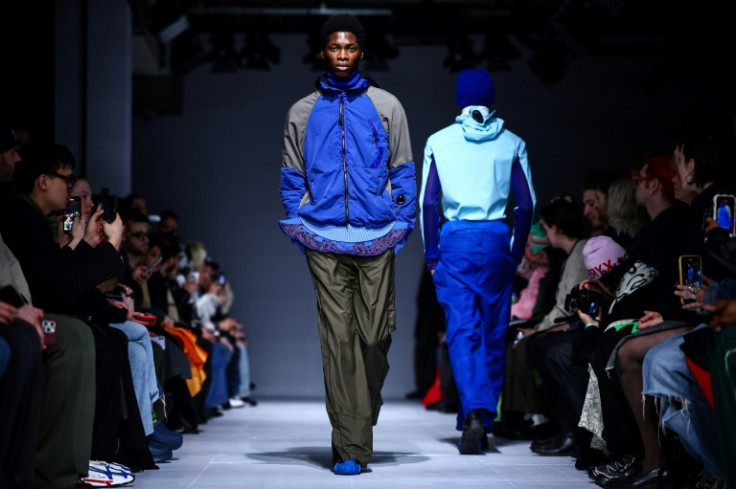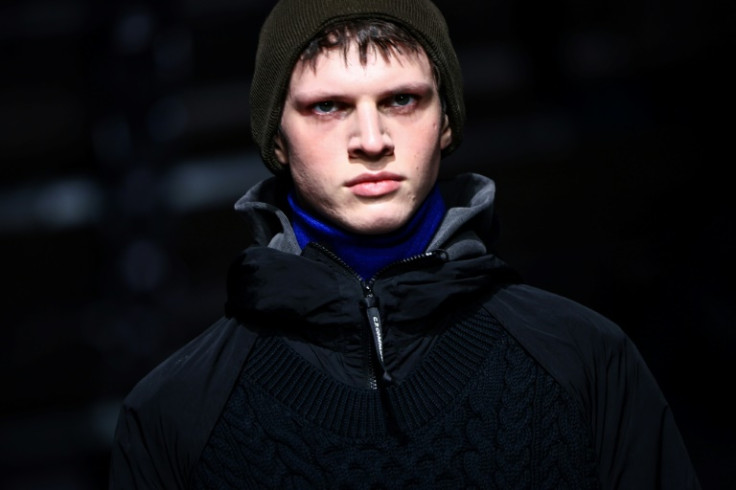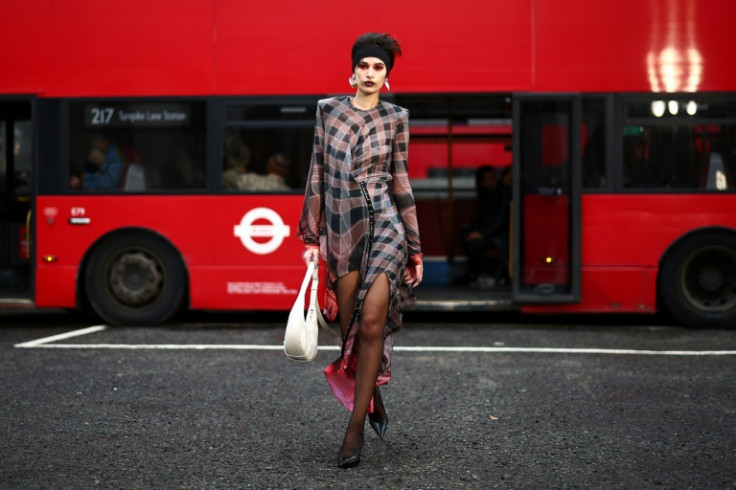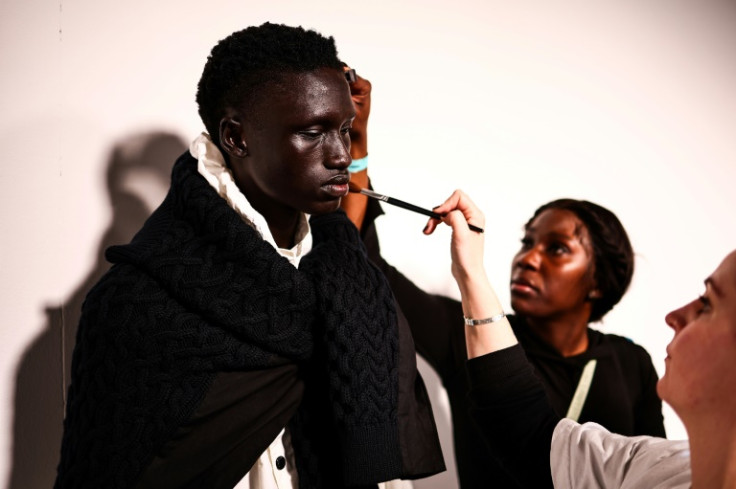Family Ties And City Life Stitch Style Into London Fashion Week

Familial nostalgia, cultural roots and the frenetic pace of London life marked the second day of the city's Fashion Week on Saturday as up-and-coming designers showed off their styles for the season ahead.
Some 60 designers, ranging from rising talents to renowned brands like Burberry, are exhibiting their new designs over five days, hoping to draw the interest of buyers and fashion influencers.
The 40th anniversary edition of the event is also introducing greater diversity and inclusivity in terms of body shapes, ages, or skin colours of the models, as well as in the designers' collections.
In her show Saturday, Dublin-born menswear designer Robyn Lynch drew inspiration from her sister's career as a Gaelic dancer, using old photographs of high kicks, spangled costumes and passionate spectators for inspiration.
"I vividly remember spending all these weekends in sports halls at competitions seeing all the glitz and drama that happened on and off stage," said the designer, who used Celtic knots and monograms in her designs.
Lynch's designs featured diamante encrusted jorts (long shorts), a long line hoodies with elastic toggle belt and laser etched jeans with a colour palette of hickory brown, screen blue, matte black and oat milk white.
Earlier, models paraded in London's famous red double-decker buses in outfits inspired by traditional dance.
British designer Ricky Wesley Harriott kicked off with his brand SRVC with a collection named "Human Resource", inspired by modern "professional women's outfits".
The designer had his models, all perched on vertiginous heels, parade on the iconic red double-decker buses of London to "celebrate life in the metropolis".
The show featured rigid and structured jackets with pronounced shoulders, in dark colours with flashy accessories, from XXL silver hoop earrings to rings covering every finger.
Designer Priya Ahluwalia, who draws inspiration from her Indian-Nigerian heritage, was cheered after her show, which featured male and female models in earthy reds, oranges and blues parading to thumping house music.
Indian and West African fairy tales that she grew up with like "The Prince Who Wanted The Moon", "The Magic Fiddle" and "How The Leopard Got His Spots", were used in her designs for the season, she told British Vogue.
"I was thinking about how stories have affected my life -- why do we like the stories we like, and how do they get passed on," she said.
Ahluwalia said the corset-like detailing in the knitwear of her designs was inspired by Netflix's "Queen Charlotte: A Bridgerton Story", which she watched while conducting research for her collection.
The designer, who launched her brand Ahluwalia in 2018, works with limited quantities of fabrics, often upcycling and using patchwork techniques to limit waste.
LFW comes at a tumultuous time for Britain's fashion industry, amid post-Brexit trade barriers and the country's inflation-fuelled cost-of-living crisis.
The difficult economic situation has even prompted some nascent designers to question the viability of investing in British fashion events.
Rising star Dilara Findikoglu made headlines last September after she cancelled her show days before the event for financial reasons.
The industry, which employs close to 900,000 people in the UK and contributes GBP21 billion ($26 billion) to the British economy, is facing "incredibly challenging times," LFW's director Caroline Rush told AFP.



© Copyright AFP 2024. All rights reserved.





















